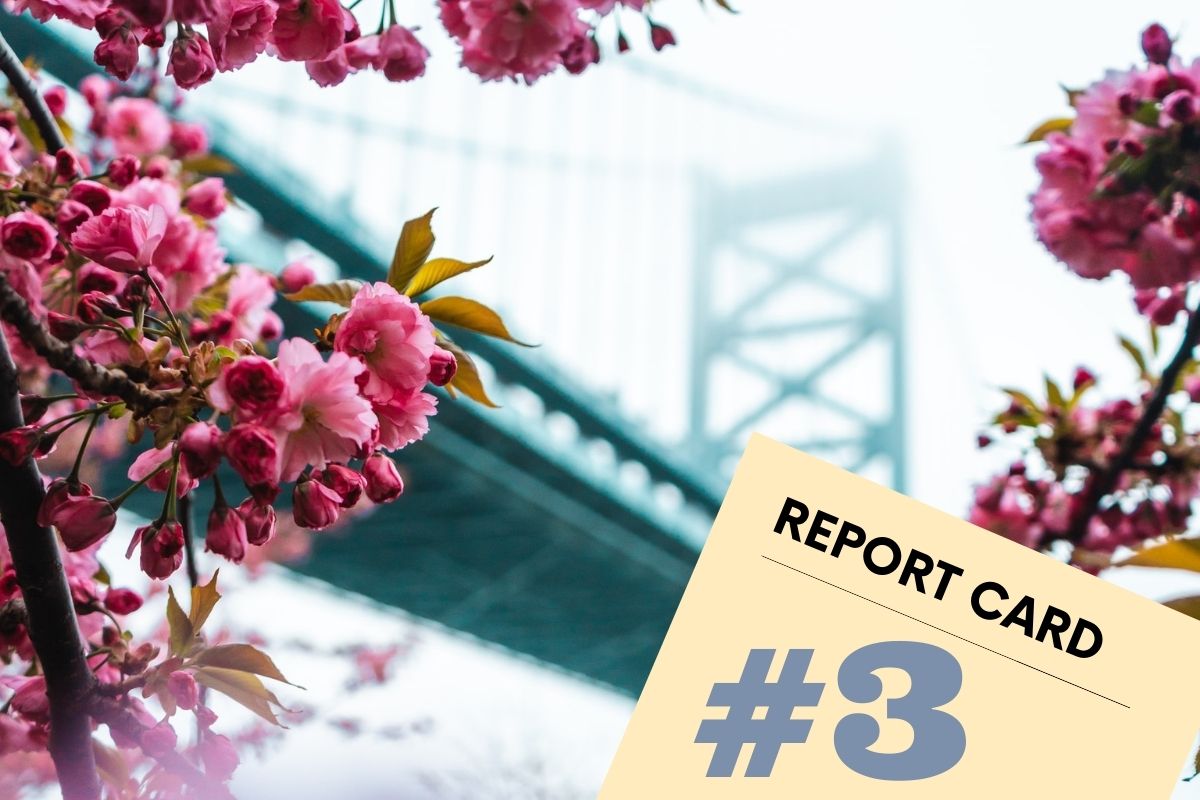The third of four surveys of civic leaders produced by Generocity as part of its TRACE yearlong reporting series focused on the region’s response to the intertwined crises of 2020 is in — and thankfully, it’s better than it was in January.
The survey was sent out to 100 leaders from philanthropy, social service organizations and smaller community groups of various backgrounds, first in October 2020, then again in January and now in April (the same survey will be sent one last time in June/July 2021).
After a dismal collapse of confidence in January — timed with the Jan. 6 U.S. Capitol invasion and locally, the high-profile Philly Fighting COVID controversy — respondents gave most efforts rebounding grades this round.
Of the dozen survey questions asked each time the survey has been sent out, the only question that has grown in average score over all three sessions is the self-assessment: “How would you grade your own contribution to the region’s recovery?” In this third report card, that question racked up the second highest score overall.
The highest score belongs to the question about the region’s response to the immediate pandemic health crisis. But many respondents made clear that the positive score was due to the nonprofit sector filling gaps left behind by government leaders.
“Seems like there are many orgs stepping in, particularly around vaccine access, where the government is failing,” wrote one respondent when assessing the current vaccine-focused response to the pandemic.
“Nonprofits are doing the lion’s share of this work,” stated another.
And a third wrote that “coordination at the City and across stakeholders seems very messy and it’s unclear who the conveners and connectors are to make sure resources and information are being disbursed in an effective and transparent way. There’s also been a serious lack of leadership in City Hall. No vision.”
Respondents marked relative progress in the economic response, including small business support and enthusiasm for entrepreneurship. “Lots of money is being poured into entrepreneurship, particularly supporting Black and brown founders,” wrote one respondent. “My concerns are that it is not coordinated — meaning a bunch of groups are doing their own thing — and it feels like it won’t be sustainable. I’m concerned that folks will be ‘on to the next’ in about 18 months and we’ll be back to locking out Black and brown folks from accessing growth and startup capital.”
The lowest rated response in the survey on each of the three occasions it has been sent out is the same: Confronting Systemic Change to Law Enforcement. Many dismiss entirely the commitment leaders have for real change, as opposed to just going through the motions.
One respondent noted: “There is so much work to be done in police reform and how police engage with [the] community. There are good examples at the district level but they have not turned into system-wide reforms.”
A snapshot of the region’s recovery in aggregate
The report card is part of Generocity’s yearlong reporting project, which started tracking the region’s response to pandemic, economic crisis and structural racism in July 2020. The two graphs below chart the rating of the 12 questions — during the three survey intervals — out of a possible 100% performance.

(Graphic via Generocity)

(Graphic via Generocity)
For context, the organizations represented vary greatly in size — from tiny grassroots organizations to large and very complex ones; fewer organizations participated in January and April than in October. In each cohort, the majority of respondents are headquartered in Philadelphia, with only a few respondents headquartered in the suburbs.
A closer look at the qualitative responses
The self-assessment form allowed respondents to include anonymized comments at the end of each category, and the majority of the members of this cohort of respondents took time to explain their responses. Here is a representative sampling:
- “I have been more engaged with my hyper-local committee — councilperson district and Ward as a result of last year’s calamities and my own personal loss. I’m personally interested in how we sustain and maintain this energy so this level of engagement, innovation and progress is normalized outside of crisis.”
- “’Recovery’ is not the appropriate word. The crisis is still here, still very much present.”
- “[Some individual] City Council members Gauthier, Gym and Brooks are to be lauded for their tireless work on the housing issues alongside groups like CLS and One Pennsylvania. I don’t see anything from the administrative branch of the government to speak of.”
- “The City is not doing enough around vaccine access or equity in distribution for those with limited English skills or lack of technology.”
- “Leadership in the private and nonprofit sectors have been impressive, in many cases. Governmental leadership, particularly at the city level, continues to really be lacking.”
- “We need to be pouring every available dollar into maintaining and creating jobs and that means supporting small business. Stimulus checks are good, but not sustainable. We need employment opportunities.”
Generocity will ask these same questions of the same 100 regional leaders one final time (by July 2021) to coincide with completion of the TRACE project.
Before you go...
Please consider supporting Technical.ly to keep our independent journalism strong. Unlike most business-focused media outlets, we don’t have a paywall. Instead, we count on your personal and organizational support.
Join our growing Slack community
Join 5,000 tech professionals and entrepreneurs in our community Slack today!

The person charged in the UnitedHealthcare CEO shooting had a ton of tech connections

From rejection to innovation: How I built a tool to beat AI hiring algorithms at their own game

Where are the country’s most vibrant tech and startup communities?


